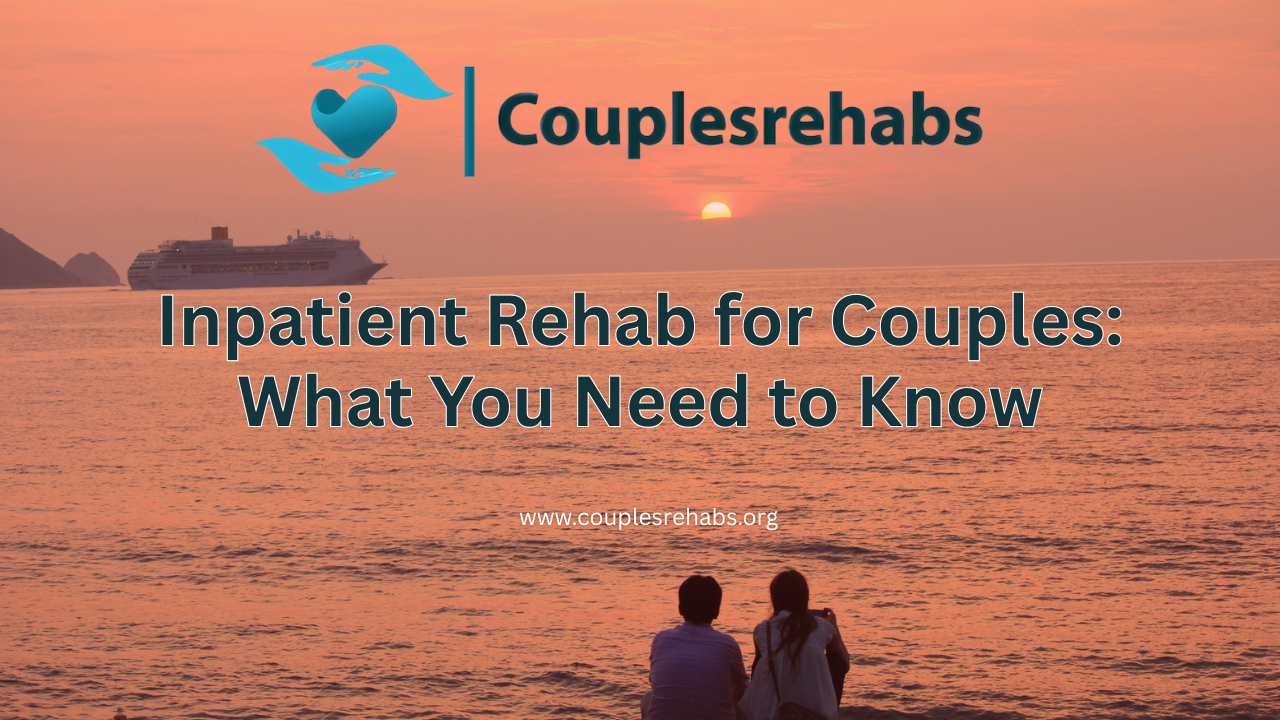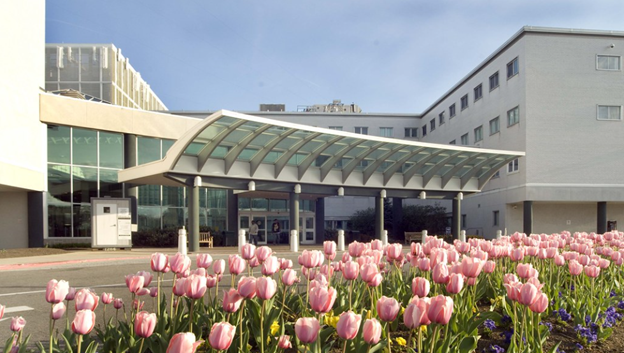Inpatient Rehab for Couples: What You Need to Know
When addiction affects both partners in a relationship, the path to recovery becomes more complex yet potentially more powerful. Recent studies from the Substance Abuse and Mental Health Services Administration (SAMHSA) reveal that approximately 40% of individuals seeking addiction treatment report that their partner also struggles with substance use. This reality has sparked the development of specialized inpatient rehab for couples programs that address both individual recovery needs and relationship dynamics simultaneously.
Unlike traditional rehabilitation approaches that separate partners during treatment, couples-focused inpatient programs recognize that addiction often intertwines with relationship patterns, codependency, and shared triggers. These comprehensive treatment programs offer a unique opportunity for partners to heal together while developing healthier communication patterns and mutual support systems that extend far beyond the treatment facility walls.
Understanding Inpatient Rehab for Couples: A Comprehensive Overview
Inpatient rehab for couples represents a specialized approach to addiction treatment where both partners receive intensive, residential care while participating in joint therapeutic sessions designed to address relationship dynamics alongside individual recovery goals. These programs typically last between 30 to 90 days, with some long-term inpatient rehab for couples extending up to six months depending on the severity of addiction and underlying mental health conditions.
The treatment model integrates evidence-based individual therapy with couples counseling, family therapy sessions, and group therapy specifically designed for couples facing similar challenges. What sets these programs apart from traditional rehabilitation is their focus on healing the relationship as a crucial component of sustained recovery. Research from the Journal of Substance Abuse Treatment indicates that couples who complete treatment together show significantly higher long-term sobriety rates compared to those who pursue individual treatment paths.
During the initial assessment phase, treatment professionals evaluate both partners’ addiction severity, mental health status, relationship dynamics, and readiness for change. This comprehensive evaluation helps determine whether couples therapy is appropriate or if individual treatment should precede joint sessions. Some couples may need to complete detoxification separately before engaging in relationship-focused work, ensuring both partners can fully participate in the therapeutic process.
The residential setting provides a controlled environment where couples can practice new communication skills, process trauma, and rebuild trust without the external pressures and triggers that may have contributed to their substance use patterns. Medical supervision ensures safety during withdrawal and early recovery, while round-the-clock support helps couples navigate the emotional challenges that arise during treatment.
The Unique Benefits of Couples-Based Addiction Treatment
The benefits of inpatient rehab for couples extend far beyond individual sobriety, encompassing relationship repair, mutual accountability, and shared commitment to long-term recovery. One of the most significant advantages is the opportunity to address the complex dynamics that often fuel addictive behaviors within relationships. Many couples develop enabling patterns, codependent behaviors, or use substances together as a way to cope with relationship stress or trauma.
Mutual accountability emerges as a powerful force in couples treatment. Partners learn to support each other’s recovery goals while maintaining healthy boundaries and individual responsibility for their sobriety. This shared commitment often proves more sustainable than individual efforts, as both partners understand the challenges and triggers they face together. The presence of a committed partner who is also working toward recovery can provide motivation during difficult moments when the temptation to use substances feels overwhelming.
Relationship healing occurs simultaneously with addiction recovery, addressing underlying issues that may have contributed to substance use. Couples therapy sessions focus on improving communication skills, rebuilding trust, processing past hurts, and developing healthy conflict resolution strategies. Many couples discover that their substance use masked deeper relationship problems, and addressing these issues becomes essential for both recovery and relationship satisfaction.
The reduction of stigma and shame represents another crucial benefit. When both partners are in treatment, there’s less finger-pointing and blame, creating space for compassion and understanding. Couples often report feeling less isolated and more hopeful about their future together when they see other couples successfully navigating similar challenges in group therapy sessions.
Financial benefits also factor into the decision for many couples. While the cost of inpatient rehab for couples may initially seem higher than individual treatment, it often proves more cost-effective than pursuing separate residential programs. Insurance coverage may be more comprehensive when both partners are treated simultaneously, and the reduced likelihood of relapse can prevent costly future treatment episodes.
What to Expect During Inpatient Rehab for Couples
The journey through inpatient rehab for couples typically begins with a comprehensive assessment and medical evaluation for both partners. During the first 24 to 72 hours, medical professionals monitor withdrawal symptoms and provide medications as needed to ensure safety and comfort. The detoxification process for couples may occur simultaneously or separately, depending on the substances used and the severity of physical dependence.
Once medically stable, couples begin participating in a structured daily schedule that includes individual therapy sessions, couples counseling, group therapy, educational workshops, and recreational activities. A typical day might start with a morning meditation or mindfulness session, followed by individual therapy appointments, couples therapy, lunch, group therapy sessions, educational workshops about addiction and relationship skills, dinner, and evening reflection or 12-step meetings.
Individual therapy sessions allow each partner to work on personal issues, trauma history, and individual recovery goals with a dedicated therapist. These sessions are crucial for addressing underlying mental health conditions, processing past experiences, and developing personal coping strategies. Cognitive Behavioral Therapy (CBT) and Dialectical Behavior Therapy (DBT) are commonly used approaches that help individuals identify triggers, change thought patterns, and develop emotional regulation skills.
Couples therapy sessions form the heart of relationship-focused treatment. Licensed marriage and family therapists with addiction specialization guide partners through exercises designed to improve communication, rebuild trust, and establish healthy boundaries. These sessions address relationship patterns that may have contributed to substance use, such as conflict avoidance, emotional disconnection, or enabling behaviors.
Group therapy provides opportunities to connect with other couples facing similar challenges. These sessions reduce isolation and provide peer support while allowing couples to learn from others’ experiences and successes. Many couples report that seeing other relationships heal gives them hope for their own recovery journey.
Family therapy integration occurs when appropriate, involving children, parents, or other significant family members in the healing process. These sessions help repair damaged relationships and create a supportive network for ongoing recovery.
Addressing Co-Occurring Disorders in Couple-Focused Treatment
Inpatient rehab for couples with co-occurring disorders requires specialized expertise to address the complex interplay between mental health conditions, relationship dynamics, and substance use patterns. Research indicates that approximately 50% of individuals with substance use disorders also experience mental health conditions such as depression, anxiety, PTSD, or bipolar disorder. When both partners struggle with addiction and mental health issues, treatment becomes more nuanced and requires integrated care approaches.
Dual diagnosis treatment within couples programs involves psychiatric evaluation, medication management, and specialized therapy techniques designed to address both conditions simultaneously. For example, a couple where one partner has PTSD and both struggle with alcohol addiction would receive trauma-informed care alongside addiction treatment and relationship counseling.
The presence of co-occurring disorders can significantly impact relationship dynamics. Depression may contribute to emotional withdrawal and communication difficulties, while anxiety disorders might fuel controlling behaviors or substance use as self-medication. Addressing these underlying conditions becomes essential for both individual recovery and relationship health.
Treatment teams typically include psychiatrists, addiction counselors, marriage and family therapists, and other specialists who collaborate to create comprehensive treatment plans. Medication management ensures that psychiatric medications don’t interfere with addiction recovery goals, while therapy sessions address how mental health symptoms impact relationship dynamics and recovery progress.
The Financial Investment: Cost Considerations and Insurance Coverage
The cost of inpatient rehab for couples varies significantly based on factors such as treatment duration, facility amenities, location, and level of care required. Standard residential programs typically range from $15,000 to $30,000 per month per person, while luxury inpatient rehab for couples can cost $50,000 to $100,000 per month or more. These premium facilities often include private rooms, gourmet meals, spa services, and additional amenities that enhance the treatment experience.
However, the financial investment must be considered alongside the long-term costs of untreated addiction, including medical expenses, legal issues, lost income, and relationship breakdown. Many couples find that comprehensive treatment prevents these future costs and provides better value than repeated individual treatment attempts.
Insurance coverage for couples treatment varies by provider and policy. Many insurance plans cover addiction treatment as an essential health benefit, and recent mental health parity laws require equal coverage for mental health and substance abuse treatment. Couples should contact their insurance providers to understand coverage limits, copayments, and any requirements for pre-authorization.
Some treatment facilities offer payment plans, sliding scale fees, or financial assistance programs for couples who don’t qualify for full insurance coverage. Employee assistance programs (EAPs) may also provide referral services and partial funding for treatment. The key is exploring all available options and not allowing financial concerns to prevent seeking necessary treatment.
When evaluating costs, couples should consider the comprehensive nature of relationship-focused treatment. The investment includes not only individual addiction treatment for both partners but also specialized couples therapy, family therapy sessions, and relationship skills training that would be expensive to pursue separately.
Success Rates and Long-Term Outcomes for Couples in Recovery
Inpatient couples rehab success rates demonstrate promising outcomes for relationships committed to recovery together. Studies published in the Journal of Marital and Family Therapy indicate that couples who complete residential treatment together maintain sobriety at rates 15-20% higher than those who pursue individual treatment. After one year, approximately 65-70% of couples who completed inpatient treatment together remain sober, compared to 45-50% of individuals who completed treatment separately.
Several factors contribute to higher success rates in couples treatment. Mutual accountability creates ongoing motivation to maintain sobriety, as each partner understands the impact of relapse on their relationship and shared goals. The development of healthy communication skills during treatment provides tools for navigating future challenges without resorting to substance use.
Long-term relationship outcomes also show significant improvement. Couples who complete treatment together report higher relationship satisfaction, better communication, increased intimacy, and stronger commitment to their partnership. The shared experience of overcoming addiction often strengthens the relationship bond and creates a foundation for future growth.
However, success rates depend heavily on both partners’ commitment to recovery and willingness to engage in the therapeutic process. Couples where one partner is less motivated or unwilling to address relationship issues may struggle with treatment completion and long-term success. Pre-treatment assessment helps identify these factors and develop appropriate treatment strategies.
Ongoing support after treatment completion significantly impacts long-term success. Couples who participate in continuing care programs, attend support groups together, and maintain contact with their treatment team show better outcomes than those who don’t engage in aftercare services.

Finding the Right Inpatient Rehab Program for Your Relationship
How to find inpatient rehab for couples requires careful research and consideration of multiple factors that impact treatment success. Start by identifying facilities that specialize in couples treatment rather than simply allowing couples to attend traditional programs together. Specialized programs offer therapeutic approaches specifically designed for relationship-focused recovery and staff trained in both addiction treatment and couples counseling.
Accreditation serves as an important quality indicator. Look for facilities accredited by organizations such as The Joint Commission, CARF (Commission on Accreditation of Rehabilitation Facilities), or state licensing boards. These accreditations ensure that programs meet established standards for safety, ethics, and treatment effectiveness.
Staff qualifications matter significantly in couples treatment. Verify that therapists hold appropriate licenses in both addiction counseling and marriage and family therapy. The treatment team should include medical professionals, psychiatrists for co-occurring disorders, and specialists in trauma treatment if needed.
Treatment philosophy and approach should align with your values and needs. Some programs emphasize 12-step principles, while others focus on cognitive-behavioral approaches or holistic treatment methods. Consider whether you prefer gender-specific components, faith-based elements, or specific therapeutic modalities.
Location and logistics require practical consideration. While some couples prefer treatment close to home for family support, others benefit from distance that removes them from familiar triggers and environments. Consider factors such as visiting policies, communication with family, and transition planning for return home.
Research the facility’s specific experience with your situation. If you’re dealing with specific substances, co-occurring disorders, or relationship challenges such as domestic violence history, ensure the program has expertise in these areas.
Luxury vs. Standard Inpatient Rehab: Choosing What’s Right for You
The decision between luxury inpatient rehab for couples and standard residential treatment depends on personal preferences, financial resources, and treatment needs rather than treatment effectiveness. Both options can provide excellent care when properly matched to the couple’s situation and goals.
Luxury facilities typically offer private or semi-private accommodations, gourmet meals, spa services, recreational activities, and scenic locations that create a retreat-like atmosphere. These amenities can reduce stress and create a more comfortable environment for couples to focus on recovery work. High staff-to-client ratios often mean more individualized attention and flexible scheduling.
Standard residential facilities provide the same evidence-based treatments and therapeutic interventions as luxury programs but with fewer amenities and typically shared accommodations. These programs focus resources on clinical services rather than luxury amenities, often resulting in lower costs while maintaining treatment quality.
The most important factors in choosing between options include the quality of clinical programming, staff qualifications, treatment philosophy alignment, and the specific needs of both partners. A luxury facility without specialized couples programming may be less effective than a standard facility with extensive relationship-focused treatment options.
Consider practical factors such as insurance coverage, as many insurance plans have different coverage levels for luxury versus standard care. Some couples find that luxury amenities help them fully engage in treatment by reducing external stressors, while others prefer to invest resources in longer treatment duration or comprehensive aftercare services.
Aftercare Planning and Continuing Support
Successful recovery extends far beyond residential treatment completion, making aftercare planning a crucial component of couples-focused programs. Before discharge, treatment teams work with couples to develop comprehensive continuing care plans that address ongoing therapy needs, support group participation, and relapse prevention strategies.
Ongoing couples therapy helps maintain the communication skills and relationship tools developed during treatment. Many couples benefit from weekly or monthly sessions with a therapist familiar with addiction recovery to address challenges that arise during early recovery and beyond.
Individual therapy continues to address personal recovery goals and any ongoing mental health needs. Each partner may work with separate therapists to maintain individual growth while participating in joint sessions for relationship issues.
Support groups specifically for couples in recovery provide ongoing peer support and accountability. Organizations like Recovering Couples Anonymous offer meetings designed for couples navigating recovery together, creating community connections with others who understand their unique challenges.
Recovery planning includes practical considerations such as living arrangements, employment, financial management, and social activities that support sobriety. Couples learn to identify potential triggers and develop specific strategies for maintaining recovery while rebuilding their life together.
Regular check-ins with the treatment team or aftercare coordinators help monitor progress and address challenges before they lead to relapse. Many successful couples maintain contact with their primary counselors for months or years after treatment completion.
Frequently Asked Questions About Inpatient Rehab for Couples
Can we stay in the same room during inpatient treatment?
Most inpatient rehab for couples programs offer shared accommodations, though policies vary by facility. Some programs provide private rooms for couples, while others may have separate but adjacent rooms. During detoxification, couples might be temporarily separated for medical safety reasons. Discuss accommodation preferences during the intake process to ensure the facility can meet your needs.
What if only one partner wants treatment?
Successful couples treatment requires both partners to be committed to recovery. If only one partner is motivated for treatment, individual therapy and Al-Anon or similar support groups for the non-using partner may be more appropriate initially. Some facilities offer intervention services to help motivate reluctant partners, but forced participation rarely leads to successful outcomes.
How long does inpatient rehab for couples typically last?
Treatment duration varies based on addiction severity, co-occurring disorders, and relationship complexity. Standard programs range from 30 to 90 days, while long-term inpatient rehab for couples may extend to six months or longer. Your treatment team will recommend an appropriate duration based on your specific needs and progress during treatment.
Will our children be able to visit during treatment?
Most facilities have specific visiting policies that include provisions for children. Some programs offer family weekends or designated visiting hours where children can participate in age-appropriate activities. Family therapy sessions may include children depending on their age and the clinical appropriateness. Discuss family policies during program selection to ensure they align with your needs.
What happens if we have a fight during treatment?
Conflict during couples treatment is common and often becomes valuable material for therapy sessions. Treatment facilities have protocols for managing relationship conflicts, including temporary separation if needed for safety. Trained staff help couples process disagreements constructively and use conflicts as opportunities to practice new communication skills learned in therapy.
Do both partners need to have the same addiction?
No, couples can have different substance use patterns or addiction types. One partner might struggle with alcohol while the other uses opioids, or one might have a gambling addiction while the other has a substance use disorder. Treatment plans are individualized for each partner while addressing shared relationship dynamics and triggers.
How much does couples rehab cost compared to individual treatment?
While the upfront cost may be higher, couples treatment often proves more cost-effective than two separate individual programs. Costs range from $30,000-$60,000 for standard 30-day programs for both partners, while luxury programs can exceed $100,000. Many insurance plans cover couples treatment, and the reduced likelihood of relapse can prevent future treatment costs.
Can we bring our pets to treatment?
Pet policies vary significantly between facilities. Some luxury treatment centers allow emotional support animals with proper documentation, while others maintain strict no-pet policies. A few specialized facilities offer pet therapy programs or allow supervised visits with pets. If your pet is crucial for emotional support, research facilities with accommodating policies.
What if we’re not married but living together?
Most inpatient rehab for couples programs accept unmarried partners who are in committed relationships. The focus is on the relationship dynamic and mutual commitment to recovery rather than legal marital status. Some facilities may require proof of cohabitation or relationship duration, but many simply require both partners to identify as a committed couple.
Will we have access to phones and internet during treatment?
Communication policies vary by facility and treatment phase. Most programs allow limited phone access during specific hours after the initial adjustment period. Internet access is typically restricted, especially social media, to minimize distractions and triggers. Family communication is usually encouraged and facilitated through scheduled calls and video sessions.
What happens if one partner wants to leave treatment early?
If one partner wants to discharge early, the treatment team will assess the situation and provide counseling about the risks. Some couples choose to continue with individual treatment for the remaining partner, while others may discharge together. Early discharge significantly impacts success rates, so treatment teams work intensively to address concerns and encourage treatment completion.
How do you handle domestic violence history in couples treatment?
Facilities with domestic violence history require specialized assessment and safety protocols. Many programs exclude couples with recent violence due to safety concerns and the need for individual healing before relationship work. Programs that do accept such couples implement strict safety measures, individual therapy focus, and gradual introduction of couples work only when deemed clinically appropriate.
Conclusion: Taking the First Step Together
Inpatient rehab for couples offers hope for relationships affected by addiction, providing a comprehensive approach that addresses both individual recovery and relationship healing. The journey requires courage, commitment, and willingness to examine difficult patterns and make significant changes. However, couples who complete treatment together often find that their relationship emerges stronger, healthier, and more fulfilling than ever before.
The decision to pursue treatment together represents a powerful commitment to both individual sobriety and relationship recovery. While the process may feel overwhelming, remember that specialized programs exist to guide couples through each step of the journey with professional support, evidence-based treatments, and proven strategies for long-term success.
If you and your partner are struggling with addiction, don’t wait for the problem to resolve itself. Research treatment options, contact facilities for information, and take the first step toward recovery together. Your relationship and your future are worth the investment in comprehensive, professional treatment that addresses both addiction and relationship healing.
Recovery is possible, relationships can heal, and hope exists for couples willing to do the work together. Contact Couples Rehabs today to learn more about how inpatient rehab for couples can help you and your partner build a foundation for lasting recovery and renewed love.


















Recent Comments